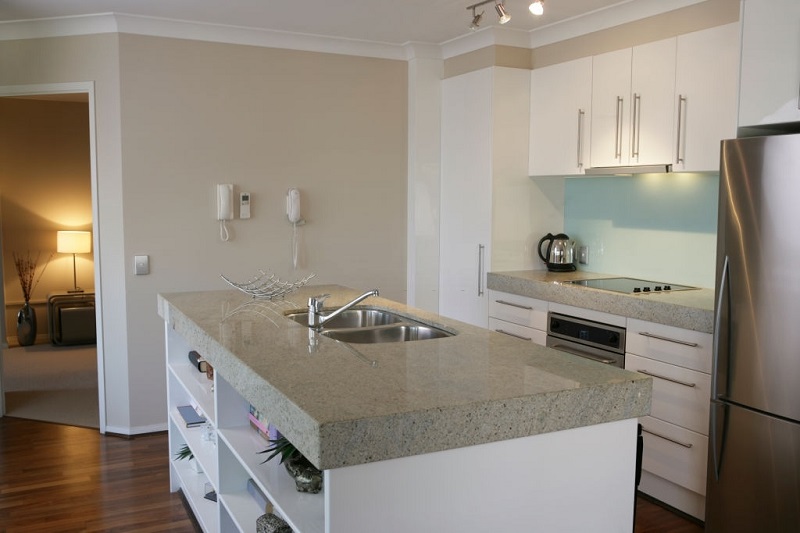Resistance is what is asked to support and sustain the food preparation activities. Subjected to daily wear, it must be functional, durable, and hygienic. Which one you should choose better to be based on technical and aesthetic differences in materials, from the classics to the more technological ones! Let’s discus.
When purchasing the kitchen, the focus remains mainly on the finish and color of the doors, but the choice of the top or engineered stone benchtop should not be neglected, a term that clarifies its primary purpose. There are two aspects to consider. The first is aesthetic; that is, it must agree with the style of the layout and the rest of the furnishings.
The second is functional because it must have precise technical qualities like hygiene, first of all, thanks to a compact surface with no points where dirt and bacteria can nest. Secondly, water repellency, to avoid water infiltration; mechanical resistance, that is, the ability to resist shocks, abrasions, and heat. Finally, it must be easy to clean, repairable, or even better, and should require no maintenance.
 |
| Benchtop |
Top in Engineered Stone Benchtop
It is the material of choice in professional kitchens: unassailable by bacteria and unalterable over time. Properties that make it perfect even in domestic environments.
Hygiene Guaranteed
It is said that it does not rust when exposed to atmospheric agents on engineered stone benchtop, it is characterized by the high percentage of chromium which, oxidizing in contact with oxygen, transforms into chromium oxide adhering to the surface and preventing further oxidation.
- The smooth and non-porous finish hinders the adhesion and survival of bacteria and other microorganisms.
- Conversely, the material is very susceptible to scratches and dents and is also very expensive.
- It can be cleaned with a soft cloth soaked in soapy water or with a specific product if there are traces of lime scale.
Always avoid the use of abrasive products. If the surface is satin, it must always be cleaned in the direction of the satin finish and not in the transverse direction.
Top with Burners and Tubs
Most of the time, the worktop's surface is specially cut or shaped to allow the insertion of the hob and sink with the bowls engineered stone benchtop.
- In this case, it is necessary to pay close attention to the type of element and the different thermal expansion of the materials.
- With under-top or flush-mounted appliances, technical measures are used to anchor them appropriately to provide the support material. They guarantee the space necessary for the natural deformation of the content, avoiding damage (for example, with the use of panels insulators).
- Some allow the total integration (or with invisible joints) of the top with the sink: stone benchtop, solid surfaces, composite materials, and laminate.
With Ceramic Blends
Obtained with high-tech and ecological production processes engineered stone benchtop, they are very resistant to shocks, stains and are often antibacterial.
 |
| Engineered Stone Benchtop |
Porcelain Stoneware
Highly resistant to shocks, unalterable to heat, and unassailable by acids and solvents, it is also extremely compact ("vitrified") and, therefore, impermeable to water and stains.
- It is obtained by mixing selected raw materials (clays, quartz, and Feld spathic sands) to which pigments based on metal oxides are added. It is produced by pressing and fired at a temperature of 1,200 ° C.
- For the worktops, slabs of maxi size (100 x 300 cm and over) and very thin (3-3.5 mm) are used. The material can be easily cut, shaped, and drilled. It has a monolithic aspect; all joints are invisible.
- Easy to clean and maintenance-free.
The Most Advanced Stones
They are identical in appearance to the original materials for engineered stone benchtop, such as quartz, marble, and granite, from which they derive. But they boast superior technical properties.
Recomposed or Agglomerated
More than a material, it is a family of products, also called engineered stones or technical stones. Their main feature is to reproduce traditional quarry materials with engineered stone benchtop, without those defects that discourage their use in an environment subject to contact.
For knowing more information about engineered stone benchtop, please visit here for further information.
Comments
Post a Comment